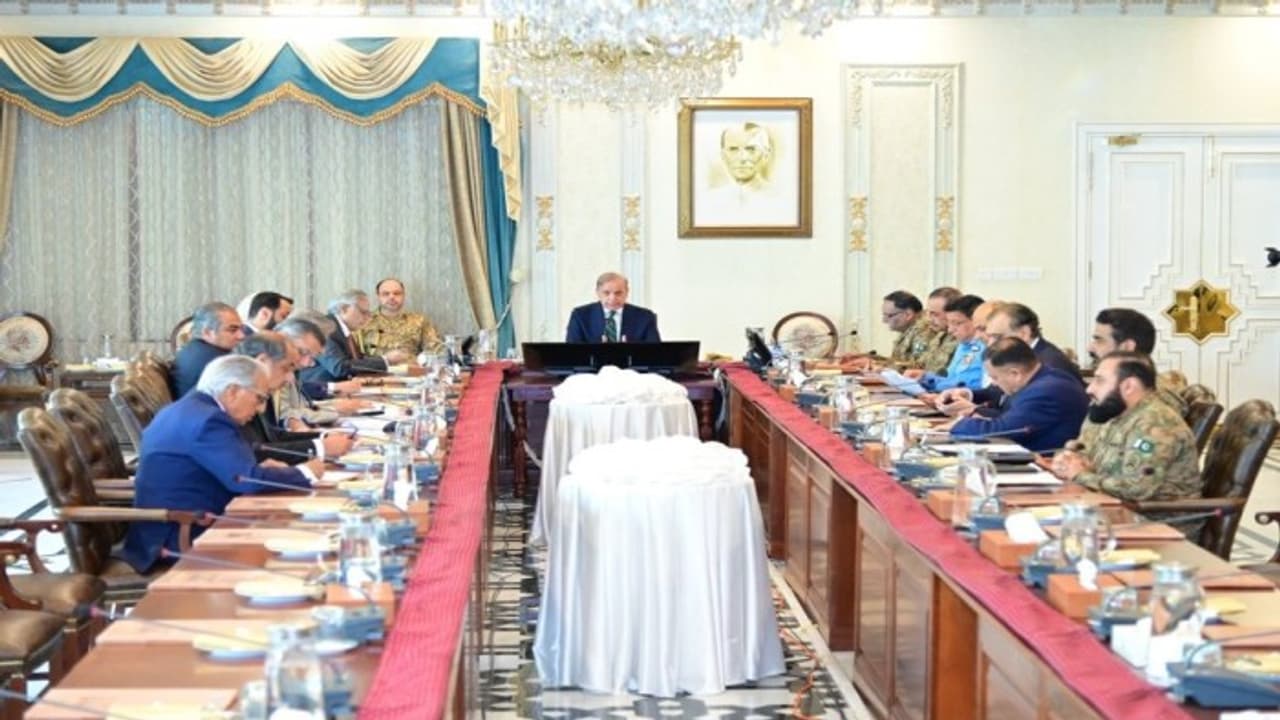Pakistan is reportedly considering suspending the Shimla Agreement and all other bilateral accords with India amid tensions over Pahalgam terror attack, which claimed 26 lives, mostly Hindus.
Pakistan’s National Security Committee, chaired by Prime Minister Shehbaz Sharif under the shadow of Army Chief Gen. Asim Munir, convened on Thursday as tensions rise over the Pahalgam terror attack in India.

A military handout to ISPR-linked journalists revealed Pakistan is considering suspending the Simla Agreement and other bilateral accords with India.
Inter-Services Public Relations (ISPR) is Pakistan Armed Forces' media and public relations wing. It coordinates and broadcasts the military news.
The move comes amid intensifying global condemnation of the April 22 attack, which killed 26 civilians in Jammu and Kashmir. Critics in India have slammed Pakistan-based terror groups for the violence, further straining already fragile ties between the two nuclear-armed neighbours. Diplomatic escalation now appears increasingly likely.
Tensions between India and Pakistan have escalated sharply following the terrorist attack in Pahalgam, Jammu and Kashmir, which claimed 26 lives. India has responded by suspending the Indus Waters Treaty, closing the Wagah-Attari border, expelling Pakistani diplomats, and cancelling SAARC visa exemptions for Pakistani nationals.
The Indian government has accused Pakistan-based groups of orchestrating the attack, with Defence Minister Rajnath Singh vowing to reach the conspirators behind the scenes. In contrast, Pakistan has denied involvement, attributing the violence to internal Indian issues.
The attack occurred in the Baisaran Valley, a popular tourist destination near Pahalgam. Militants, reportedly affiliated with The Resistance Front—a proxy of Lashkar-e-Taiba—opened fire on tourists, separating men from women and children before executing the men at close range.
Survivors described harrowing experiences, including being forced to recite Islamic verses to prove their faith. One local pony ride operator, Adil Hussain Shah, was killed while attempting to protect tourists. The attack marks the deadliest in the region since the 2008 Mumbai attacks and has led to a significant diplomatic fallout between the two nations.
In a series of strong measures following the April 22 terror attack in Pahalgam, India has announced a sharp recalibration of its diplomatic and security engagement with Pakistan:
Indus Waters Treaty Suspended: The Indus Waters Treaty of 1960, a key bilateral agreement governing river water sharing, will be held in abeyance with immediate effect.
Closure of Attari Check Post: The Integrated Check Post at Attari has been closed with immediate effect. Pakistani nationals with valid travel endorsements may return through this route only until May 1, 2025.
SAARC Visa Exemption Cancelled: Pakistani citizens will no longer be allowed entry into India under the SAARC Visa Exemption Scheme (SVES). All previously issued SVES visas for Pakistani nationals stand cancelled. Those currently in India on such visas have been given 48 hours to exit the country.
Military Attachés Declared Persona Non Grata: India has declared the Defence, Naval, and Air Advisors stationed at the Pakistani High Commission in New Delhi as persona non grata. They have been directed to leave the country within a week. Simultaneously, India will withdraw its own military advisors from the Indian High Commission in Islamabad, along with five supporting staff members.
High Commission Staff Reduced: The strength of diplomatic personnel at both High Commissions will be downsized from the current 55 to 30. The reduction is to be completed by May 1, 2025.
These steps reflect India’s firm stance in the aftermath of the terror attack, which left 26 people dead, and mark a significant deterioration in bilateral ties.
Prime Minister Narendra Modi, during a public address in Bihar, vowed to punish the preparators and every terrorist involved in the attack on tourists in Pahalgam. In strong message to the world, PM Modi said that India will identify, track and punish every terrorist, their handlers and their backers. He stressed that India will pursue them to the ends of the earth..


